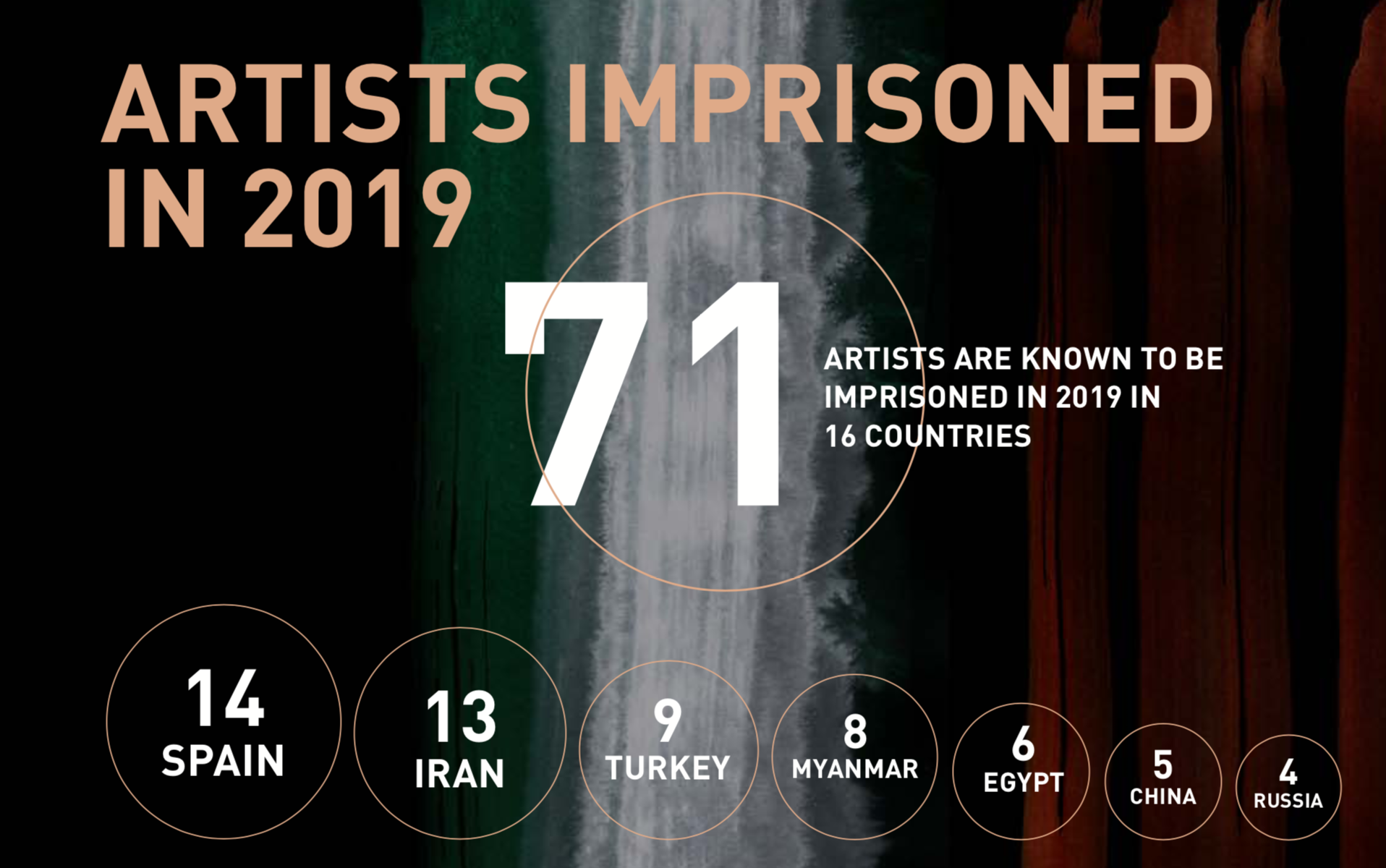Freemuse‘s new annual report,
The State of Artistic Freedom 2020, was released on April 15. The report documented 711 acts of violations of artistic freedom in 2019 in 93 different countries. It shows widespread attacks on freedom of artistic expression on a global scale as practices of censoring artists’ voices continue. As the world shifts into isolation and government’s enact state of emergency procedures, this marks a critical moment for the state of artistic freedom. The report and event explores the critical climate for artistic freedom as global nationalist populism continues to restrict expression.
Artistic freedom is a marker of a healthy and open society, and yet state and non-state actors continue to regularly violate this right around the world. At least 71 artists were known to be imprisoned in 2019 in 16 countries, including 13 in Iran, 9 in Turkey, 8 in Myanmar, and more. The most common reason for artists’ imprisonment stemmed from criticizing government policies and practices, at 42%. 56% of artists detained were detained for political reasons, and of these, 32% of detentions occurred in the Asia and Pacific region. Counterterrorism laws had an especially large effect on these detentions and imprisonments, with 19 artists imprisoned, 13 detained, and 4 prosecuted in at least 8 different countries under such laws.
Over the course of 2019, the world also continued to witness the deepening of discourse based on uninhibited nationalist and populist sentiments, in which human rights concerns were repeatedly jettisoned. These platforms have deliberately been used to undermine notions of cultural diversity and plurality in an attempt to cultivate nation-building on the idea of “us and them.” When paired with narratives of religious nationalism, this has heightened fears of growing intolerance, particularly towards alternative narratives and vulnerable groups such as religious minorities, LGBTI groups, and women. In some parts of the world, such as Hungary and Turkey, it appears that regimes have replaced cultural politics with identity and symbolic politics. All of this has ultimately triggered a range of violations of artistic freedom of expression.


